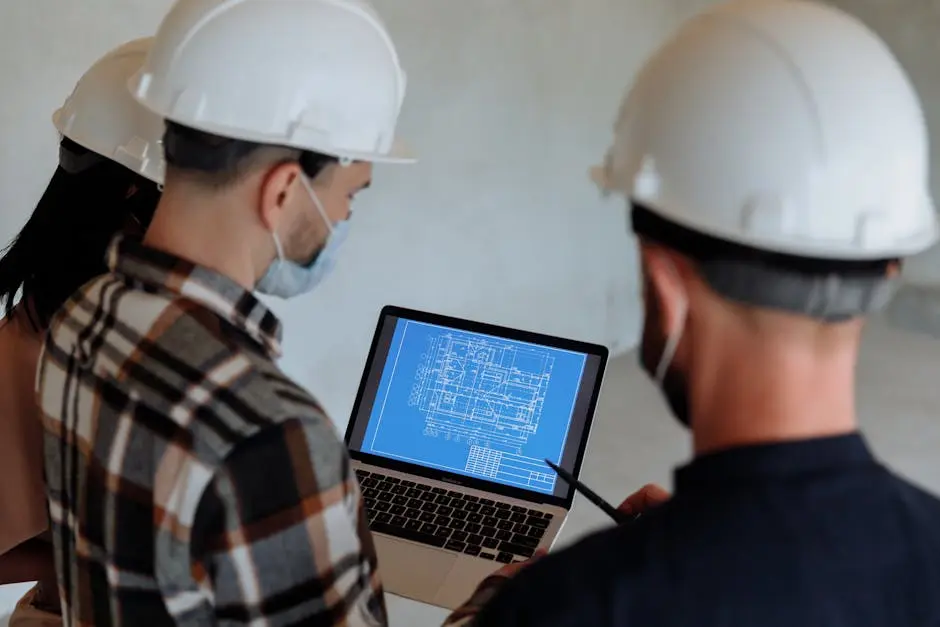Understanding the gas safety responsibilities that come with being a landlord is crucial for ensuring the safety and well-being of your tenants. This blog will guide you through the key responsibilities you must adhere to, helping you stay compliant and maintain a safe rental property.
Understand the Legal Requirements
As a landlord, it’s essential to familiarize yourself with gas safety regulations applicable in your region. This includes knowing the laws and standards you must meet to ensure tenant safety. According to the Gas Safety (Installation and Use) Regulations 1998, landlords are strictly required to maintain the safety of gas appliances, chimneys, flues, and fittings in their properties. This regulation mandates regular checks conducted by a qualified Gas Safe registered engineer, ensuring that all aspects of gas safety are meticulously followed.
Keeping up with such legislations not only prevents legal issues but also fosters a safe living environment. Many landlords may not fully grasp the depth of their legal obligations, which can result in hefty fines or worse, should an accident occur. Knowledge of these requirements is crucial—making sure that every base is covered protects both you and your tenants. Besides, it’s not just about following the law; in essence, it’s about ensuring your tenants’ safety.
Conduct Regular Gas Safety Checks
Regular inspections by a registered gas engineer are a crucial part of maintaining gas safety. These checks help ensure that all gas appliances and fittings are functioning correctly and safely. As recommended, these checks should be scheduled annually, though some landlords preferred to have them more frequently depending on appliance usage and age.
Understandably, scheduling these checks might seem burdensome for some landlords. However, the peace of mind received from knowing that certified professionals have inspected your property definitely outweighs the inconvenience. Regular inspections help in identifying potential risks early on, preventing them from developing into significant concerns. Fostering a proactive approach helps landlords stay on top of such issues, ensuring tenant safety and a compliant property.
Even seemingly harmless issues like a slightly unusual smell or circulating air could be indicators of gas problems. Hence, the importance of a reliable inspection provider cannot be overstated. Thorough checks conducted by experts with the right tools and knowledge make all the difference in determining any repairs or additional attention an appliance might need.
In ensuring the continuity of safety measures, it’s crucial to retain records of these inspections. These records act as proof of compliance, showing that you’ve diligently performed your duties as a responsible landlord. Moreover, they serve as a historical document that tracks the progression and condition of gas installations over time. Such attention to detail and record-keeping can be invaluable in safeguarding yourself and your tenants.
Provide Tenants with Safety Certificates
After each gas safety check, you must provide your tenants with a gas safety certificate. This document should detail the safety status of gas appliances and when the next check is due. This certification is a testament to your commitment to safety and transparency, solidifying trust between you and your tenants.
Direct communication about safety measures helps tenants understand and feel confident in their living conditions. By providing a copy of the certificate within 28 days of the inspection, they can rest assured knowing all necessary precautions have been taken with their well-being in mind. Moreover, when new tenants move in, always ensure they receive the most recent certificate to safeguard them from any underlying issues.
Maintain Gas Appliances
Regular maintenance of gas appliances, like boilers and stoves, is essential for preventing potential hazards. Ensure these appliances are serviced annually by a qualified professional. Although routine gas checks are conducted annually, periodic reviews between these evaluations significantly enhance your defense against unforeseen incidents, giving tenants more reason to feel secure in their homes.
Understanding that every appliance has its service requirements is pivotal. Some may necessitate more frequent checks based on their age or usage levels. In situations where manuals or service guidelines are unavailable, contacting appliance manufacturers or reputable service providers may assist in determining the maintenance routines required for their optimal operation.
Educate Tenants on Gas Safety
Inform your tenants about safe practices, emergency procedures, and the importance of reporting any gas-related issues immediately. This knowledge can greatly reduce the risk of gas-related incidents. Encouragement towards proactive communication helps nip issues in the bud, allowing for timely interventions and minimizing risk exposure.
Providing tenants with necessary contact numbers and procedures, such as reaching out to gas safety bodies, can enhance their preparedness in emergencies. Remember, a well-informed tenant is likely to respond effectively in critical situations, preventing a minor concern from escalating into a significant hazard.
Additionally, simple demonstrations or informational sessions regarding basic gas safety and alarm checks can be conducted. These sessions help tenants identify early warning signs and respond promptly in maintaining safety and addressing potential concerns. Thus, by integrating education as part of your gas safety strategy, you’re fortifying not only the physical safety mechanisms but also fortifying tenant confidence and security.
Ensuring Safety and Compliance
Ensuring gas safety in your rental property is not just a legal obligation but a moral duty to protect your tenants. By adhering to these responsibilities, you can provide a safe living environment and build a positive relationship with your tenants. For more comprehensive assistance and a reliable service provider, consider checking out our homepage for all your gas safety needs.










